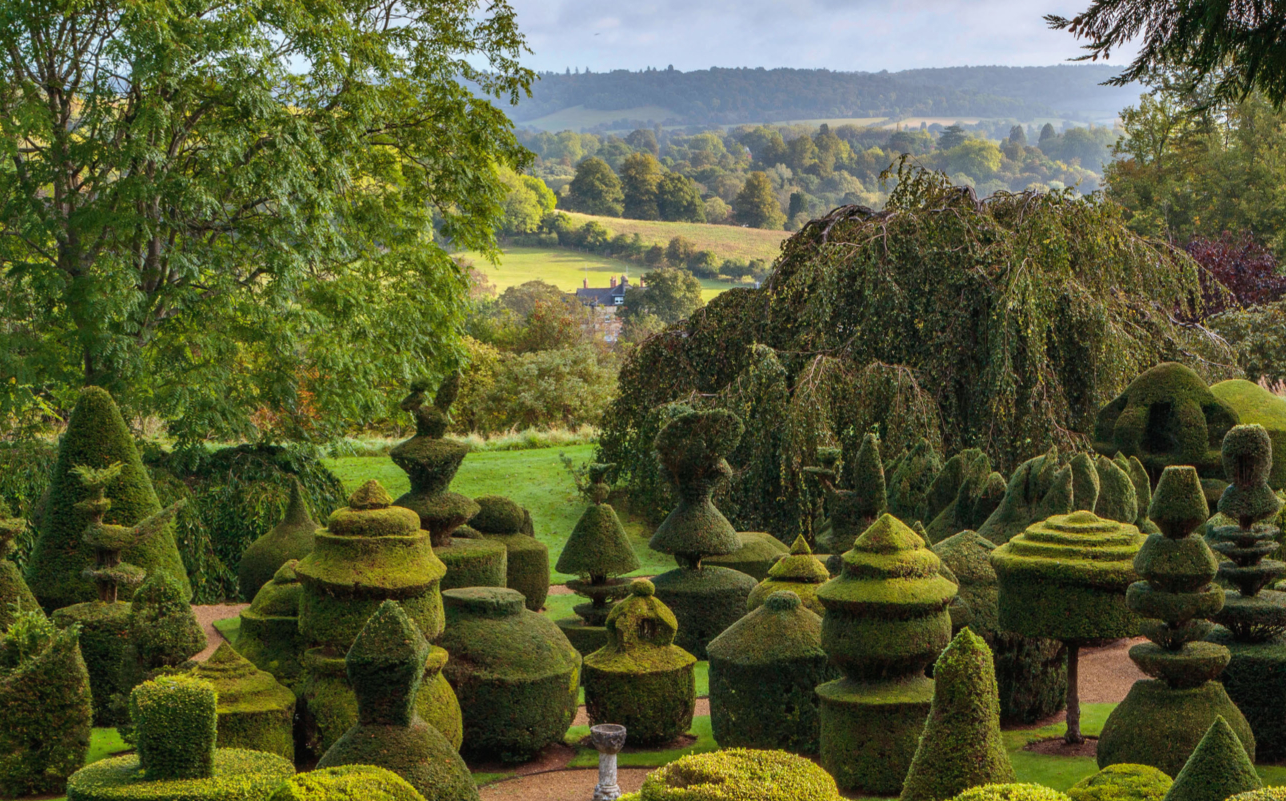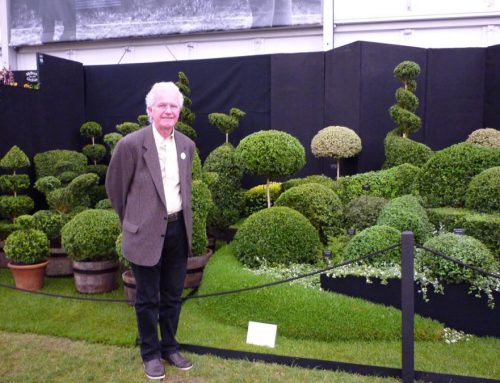The Topiary Garden at Friar Park, Henley-on-Thames, Oxfordshire
The home of Mrs Olivia Harrison
Friar Park: A Rock Star’s Victorian Gothic Revival Dream
Nestled in the chalk downs above Henley-on-Thames, Oxfordshire, lies Friar Park, a Victorian Gothic Revival estate with a fascinating history. Originally built in the 1870s and later expanded in the 1890s, the estate was once home to Sir Frank Crisp, an eccentric lawyer with a passion for collecting sundials and creating fantastical gardens.
The Garden’s Eccentricities
Crisp’s unique vision led to the creation of a vast alpine rock garden, complete with a scale model of the Matterhorn, as well as a series of caves, grottos, and underground passages adorned with garden gnomes. One of the garden’s most notable features was the Dial Garden, a labyrinthine collection of 39 sundials of various types, each bearing a motto and surrounded by whimsical topiary yews.
From Nuns to a Beatle
After Crisp’s death in 1919, the estate changed hands several times, eventually becoming a convent school run by an order of nuns. However, the upkeep of the extensive gardens proved too costly, and the estate was sold to none other than George Harrison of the Beatles in 1970.
Harrison’s Restoration and Legacy
Harrison, captivated by the estate’s unique charm, embarked on a massive restoration project. He cleared the overgrown gardens, repaired the neglected structures, and revived the topiary garden, which had become a tangled jungle of yews. Harrison’s wife, Olivia, continued the restoration efforts after his passing in 2001, commissioning expert topiarist James Crebbin-Bailey to further develop the topiary garden.
A Topiary Masterpiece
Today, Friar Park boasts one of the largest collections of topiaries in Britain, with an estimated 161 to 166 yew and box specimens. The garden’s distinctive shapes and meticulous maintenance make it a true masterpiece of topiary art, reflecting both the historical legacy of Sir Frank Crisp and the creative spirit of George Harrison.
Credit to Country Life | December 6, 2023






